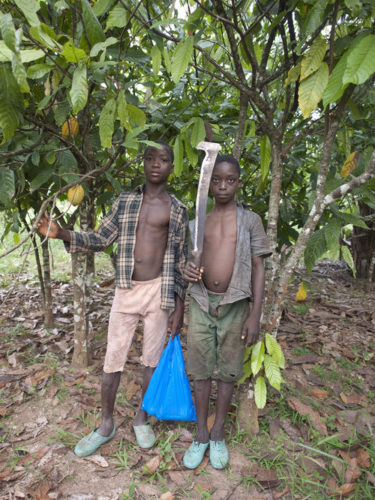Opinion: Child labor is on the rise; here’s how to prevent it
By Kunera Moore
Did you know that some of your favorite foods may be produced with child labor? The U.S. Labor Department, for example, named coffee as a product associated with child labor risk in 17 countries. This risk also remains widespread in cocoa, the main ingredient of chocolate: more than 60% of it is grown in Côte d’Ivoire and Ghana, where child labor remains widespread.
Due to the COVID-19* pandemic, more than 635 million students are affected by full or partial school closures, UNICEF announced last week. And shuttered schools combined with frozen economies means more children are driven into the workforce, according to a recent report by UNESCO, UNICEF, and the World Bank.
A staggering estimate of 160 million children worldwide are involved in child labor, according to a 2021 International Labour Organization report based on data collected before pandemic-induced school closures. This marks an 8.4 million increase since 2016.

Child cocoa workers in West Africa. Photo by Robin Romano.
Yet over the past 20 years, remarkable strides have been made to decrease the number of children involved in child labor worldwide. The Sustainable Development Goal of eradicating all forms of child labor by 2025 gained new momentum for this pressing challenge in 2021, the international year for the elimination of child labor.
We can’t afford to lose this momentum.
“Ensuring all children return to school and stay in school requires urgent investments in education, social security, and poverty reduction.”
Seventy percent of children in child labor are working in agriculture — work that can be dangerous and exhausting with long hours under the hot sun. The problem is particularly acute in the African continent. In Uganda, for instance, 22% of children ages 5 to 14* are involved in child labor and do not attend school. But the situation is also serious in a country such as Mexico, where 4% of children work and from that number, 30% work in agriculture*.
Child labor must stop. But while banning child labor is commonly perceived as the silver bullet, it’s not enough.



